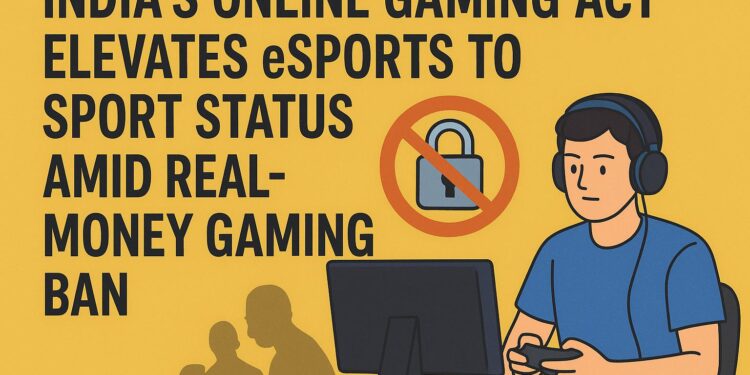India’s Promotion and Regulation of Online Gaming Act, 2025 has fundamentally reshaped the gaming industry by legally prohibiting all real-money gaming (RMG). Despite this disruption, the law grants official sport status to eSports, aiming to support its development and separate skill-based competitive gaming from gambling.
According to The CapTable, this recognition of eSports as a legitimate sport brings critical visibility and policy support. However, the industry still grapples with fragmented governance, inadequate infrastructure, and uncertain monetization models beyond sponsorships.
Union IT Minister Ashwini Vaishnaw has acknowledged these issues, stating that the government is “open to amendments” to clarify definitions around eSports, social, and hybrid formats not explicitly addressed in the Act.
Post-Ban Industry Shifts
- Prominent platforms like Dream11, MPL, Zupee, and Games24x7 have ceased their real-money offerings, leading to significant revenue losses and downsizing. Notably, MPL is planning to reduce its Indian workforce by 60%.
- In response, industry players are pivoting toward casual gaming, skill-based formats, esports, and subscription models.
Why This Matters for the AVGC & Gaming Ecosystem
| Impact Area | Significance |
|---|---|
| Policy Legitimacy | Granting sport status to eSports paves the way for infrastructure investment and formal recognition. |
| Operational Clarity Needs | Undefined territory for hybrid and emerging formats may stall innovation—requiring legal refinement. |
| Economic Rebalancing | The shift away from RMG reshapes monetization strategies—pushing focus toward IP development, subscriptions, and immersive content. |
| Talent & Investment Flow | Despite initial setbacks, regulation could refocus stakeholder interest toward sustainable and globally relevant gaming models. |









